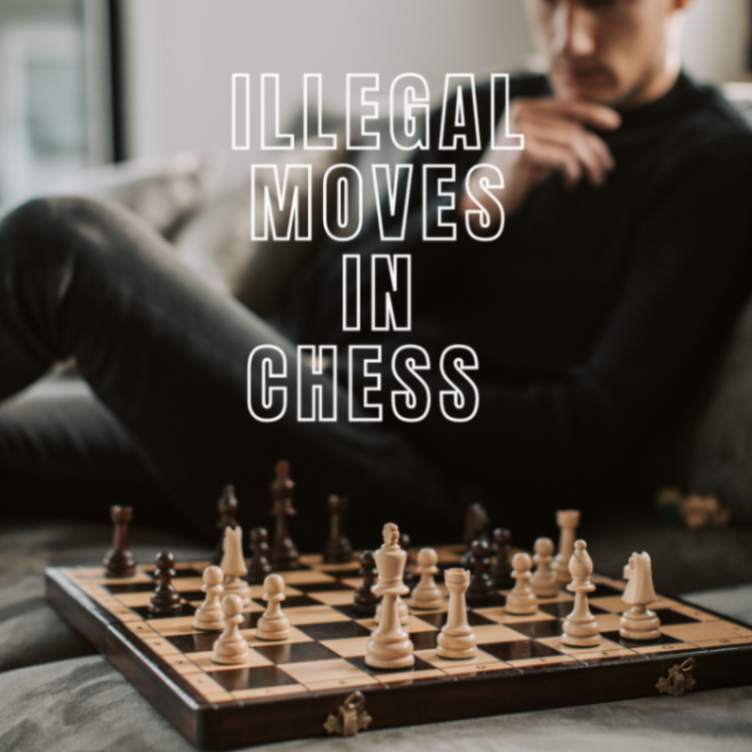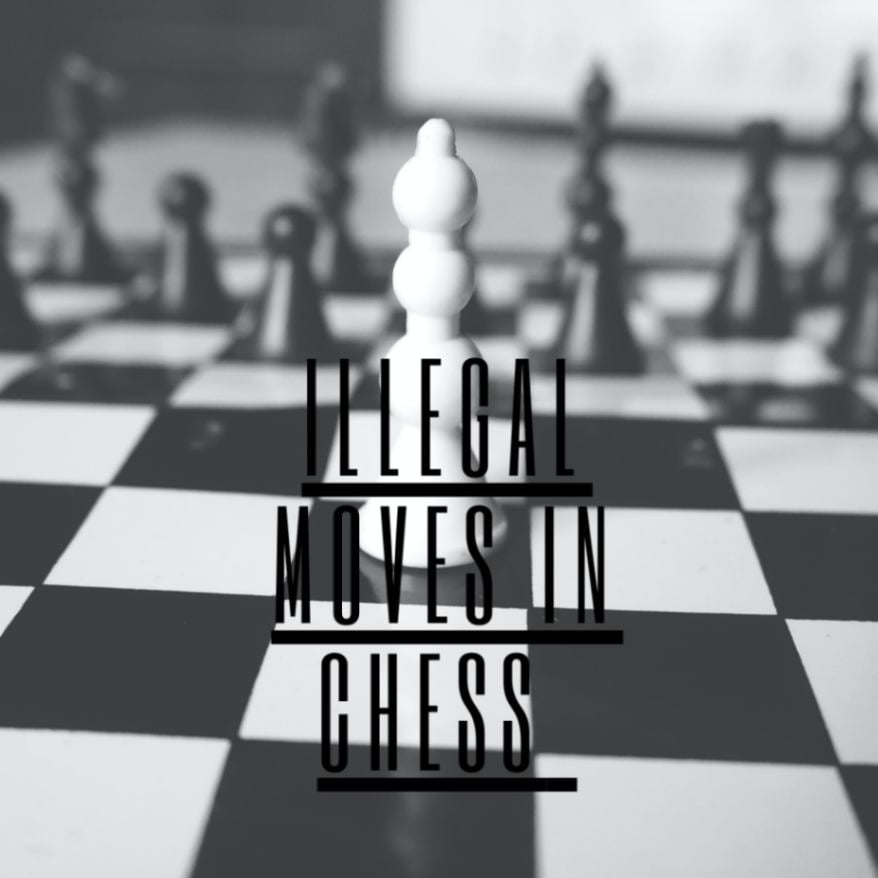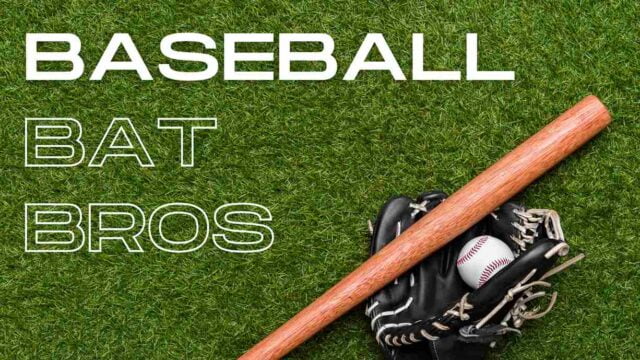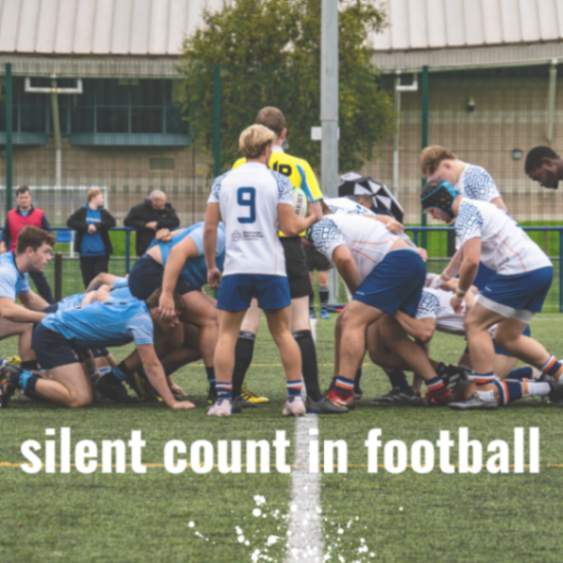
Introductory Insights into Illegal Moves in Chess
The Magnetic Appeal of Chess and the Temptation for Rule-Bending
Chess is more than simply a game; it’s a world of possibilities that challenges us to think strategically and outwit our rivals. Sometimes this alluring depth might get us into trouble by persuading us to break the rules. Whether you’re a novice or an expert player, you could feel the need to make unorthodox plays. But use caution because defying the restrictions can result in chess moves that are forbidden. Knowing the game’s limitless techniques is important, but so is being aware of its restrictions.
Why Knowing the Rules is a Game-Changer
The rules serve as the language’s grammar in the context of chess. Even if a statement appears to be well-written on the surface, grammatical errors prevent it from conveying the intended meaning. In chess, a move could appear strong, but if it’s forbidden, it’s a mistake. You’ll receive a penalty in addition to losing the respect of your rival and the audience. The game remains fair and entertaining for all players when the rules are understood.
Your Guide to Navigating Illegal Moves in Chess
Have you ever been uncertain about a move, wondering if it adhered to the rules? It’s not just you. This tutorial was created in order to provide you with a thorough overview of forbidden movements in chess. We’ve got you covered whether you’re having trouble casting or moving your pawn. This manual seeks to serve as your go-to resource for understanding what not to do on the chessboard, assisting you in developing into not just a skilled player of the game but also a respected rival.
Unraveling the Mystery: What Really Counts as an Illegal Move in Chess?
Breaking Down the Basics: What is an Illegal Move in Chess?
Let’s be clear about one thing: not every move in chess is permissible. In the context of the game of chess, an unlawful move is one that violates the rules of the game in some way. The effects are the same whether a piece is moved against the rules or you play a move that checksmate your own king. You risk fines or, in the worst situations, expulsion from organized competitions. Simply told, when it comes to forbidden movements in chess, ignorance won’t help you.
Examples That Shed Light: Common Illegal Moves in Chess
Knowing what constitutes an illegal move is essential, but nothing drives the point home like good ol’ examples. Take moving a pawn backward, for instance; it seems like a simple mistake but it’s a textbook example of an illegal move in chess. Similarly, placing your king into check is not just a poor strategy; it’s a flagrant rule violation. And don’t even think about capturing an opponent’s piece in a way that’s not kosher according to the rules. These are simple yet critical examples that everyone should be aware of to avoid the pitfalls of illegal moves in chess.
The Domino Effect: Why Illegal Moves in Chess Are a Big Deal
Keeping the Game Noble: The Importance of Fair Play in Chess
Chess is often considered the “royal game,” and like any noble endeavor, it comes with its own code of conduct. Part of what makes chess such a fascinating sport is its unwavering focus on skill and strategy. Making an illegal move in chess disrupts this balance, providing an unfair advantage to one player and disrespecting both the game and your opponent. The bottom line? Fair play isn’t just a lofty ideal; it’s essential to maintaining the integrity of chess.
On-the-Spot Consequences: Penalties for illegal moves in chess Official Matches
You might think that making an accidental illegal move in chess isn’t a big deal, but think again. In official matches, the consequences can be harsh. You could face time penalties, which are stressful in a game where every second counts. In extreme cases, you could even be disqualified, a punishment that no player wants hanging over their head. The level of the penalty often hinges on how deliberate the illegal move appears and the guidelines set by the competition.
Unraveling the Game: How illegal moves in chess Disrupt the Chessboard
Chess moves that are against the rules disrupt the entire game in addition to being bad for the player who makes them. Interruptions to the flow lead to confusion and may even result in arguments. It may occasionally be necessary to pause or, worse, restart the game, which is inconvenient for both players and viewers. Simply said, improper moves in chess can have a negative impact on everyone’s enjoyment of the game.

A Deep Dive into the Varieties of Illegal Moves in Chess
The Clock-Hand Dilemma: Making Moves with the Wrong Hand
Even the hand you use to make a move matters in competitive chess matches. Yes, you read correctly. The same hand must be used to move a piece and strike the clock. A obvious violation and forbidden move in chess is failing to do so. This rule’s justification is straightforward: it stops players from obtaining extra time by swapping hands. Although it might seem insignificant, following this guideline is essential in a match with big stakes where every second counts.
A Royal Blunder: Moving the King into Check
If there’s a commandment in chess, it’s this: thou shall not move thy king into check. Doing so is not just a poor strategic move; it’s downright illegal. And just like other illegal moves in chess, this can lead to penalties, ranging from time loss to disqualification. Mastering the rules around check and checkmate scenarios is a must for anyone looking to improve their chess game, not just to avoid penalties, but also to enhance overall gameplay.
The Pawn’s Misstep: Double-Moving a Pawn Incorrectly
In the chess world, pawns are the only pieces that have the privilege of moving two squares forward—but only on their first move. Try pulling off a double move after the pawn has already advanced, and you’re in trouble. It’s an illegal move in chess that can attract penalties, possibly even knocking you out of the competition. Understanding this unique feature of pawns is necessary for every chess player, not just to avoid making an illegal move but to fully grasp the game’s complexities.
How to Rectify Illegal Moves in illegal moves in chess
Caught in the Act: Immediate Steps to Take if You’ve Made an illegal moves in chess
So you went ahead and did it; you played a chess move that was against the rules. It’s still early in the game, so don’t panic. The best course of action is to immediately remedy your error and acknowledge your mistake. Yes, you must reset your clock, and there is a significant potential that you could be penalized for lost time. Still, the best course of action is to own your error and repair it. We promise that making a quick correction is preferable to regretting playing a dishonest game later.
When the Tables Turn: What to Expect if Your Opponent Calls You Out
Let’s imagine your adversary recognizes the improper action before you do. They have the authority to halt time and appoint an arbitrator. In accordance with the competition’s regulations and the seriousness of your offense, the arbitrator will evaluate the situation and may impose penalties. Everyone dislikes being corrected, but it’s crucial to keep in mind that the rules are in place for a purpose. It’s time to face the music and accept the consequences after being caught making an unlawful move in a sportsmanlike manner in chess.
teering Clear of Pitfalls: How to Dodge Illegal Moves in illegal moves in chess
Know the Game Inside Out: The Importance of Understanding illegal moves in chess Rules
Although it may seem obvious, knowing the rules inside and out is the greatest method to avoid making improper plays in chess. Spend some time studying the rules, watching tutorials, or even joining a neighborhood chess club where you may pick the brains of more seasoned players. You reduce your chance of doing illegally by making an attempt to comprehend what is and isn’t permitted. Keep in mind that power is information, especially when playing chess.
Learning from the Masters: Practice with Experienced Players
Learning from an expert is frequently beneficial if you want to become good at something. Chess practice with a more seasoned player can make all the difference. They can not only assist you in learning the complexities of the game but also spot your errors as they happen. You will learn the rules much more quickly and can play chess without breaking any regulations thanks to this practical learning experience. So locate a tutor, play some chess, and begin learning!
Modern Solutions for Age-Old Problems: Utilizing Apps and Online Resources
Thanks to the internet, we are fortunate to have a multitude of resources available to us right now. Use online tools and programs that replicate legal moves if you’re concerned about playing chess legally. These platforms can provide in-the-moment corrections and justifications for why a specific action is prohibited. You can familiarize yourself with the regulations and develop into a more self-assured, law-abiding chess player by consistently practicing in such settings.
Conclusion
We’ve spoken about what illegal moves are, why they’re important, and how to avoid making them. Anyone who practices chess seriously must comprehend these concepts.
In chess, knowing what to do and what not to do are both crucial skills. You maintain the fairness of the game and respect your opponent by being aware of and avoiding illegal plays. Have fun playing!
FAQs
What happens if both players don’t realize an illegal moves in chess was made?
If neither player notices the illegal moves in chess, the game generally continues as is, although this can vary depending on the competition’s specific rules.
Is castling ever considered an illegal moves in chess?
Yes, castling can be illegal if certain conditions are not met, such as moving through a check or if the king or rook involved has already moved.
How do you report an illegal moves in chess in an online game?
Most online platforms have a reporting feature where you can flag illegal moves or other violations.
What is the time penalty for making an illegal moves in chess?
The time penalty can vary but often results in adding extra time to the opponent’s clock.
Can an illegal move ever be reversed?
Typically, an illegal moves in chess must be corrected before the game proceeds, usually resulting in some form of penalty.



